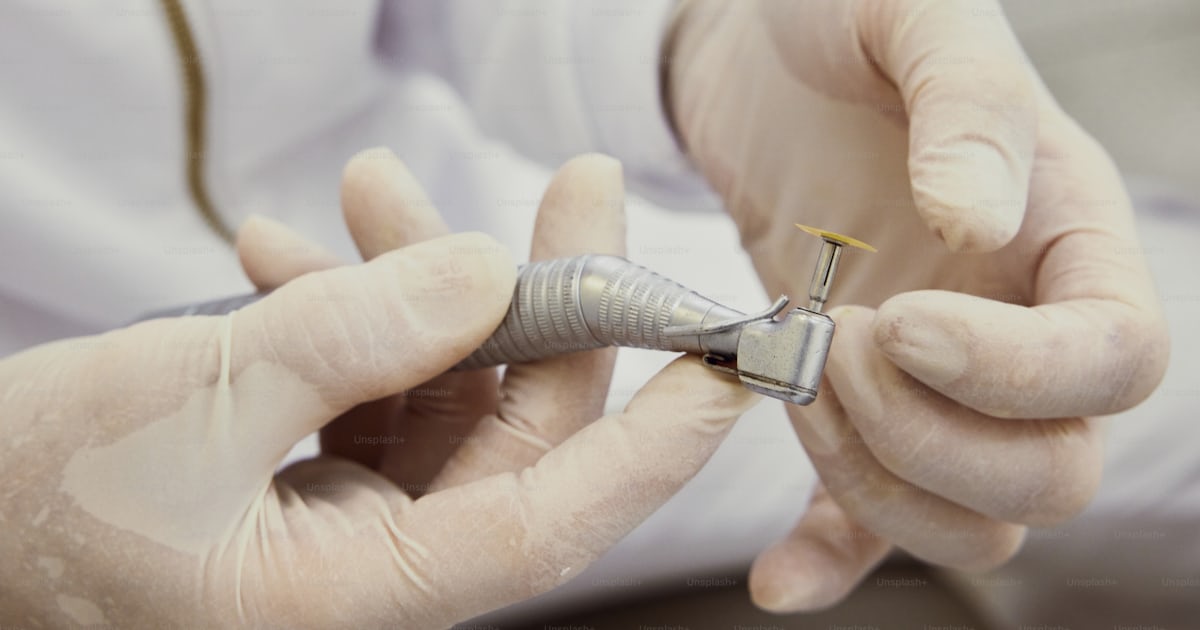Dental Implant Condit OH - Dental Implants Affordable Columbus OH
Dental Implant Condit OH - Dental Implants Affordable Columbus OH
Blog Article
Dental Implant Granville OH - Dental Implant Services in Ohio
When determining what type of anesthesia is used for dental implants, it becomes important to discover varied options available to patients. The selection of anesthesia can considerably impact the consolation of the process, the overall expertise, and the pace of recovery. Dental Implant Alexandria OH.
Local anesthesia is essentially the most generally used kind for dental implant surgical procedures. In this method, an anesthetic agent is injected close to the surgical website. Local anesthesia effectively numbs the focused area, allowing the oral surgeon or dentist to perform the process with minimal pain to the patient. It is helpful as a end result of sufferers stay totally awake and aware all through the method, fostering a sense of control.
Dental Implant Centerburg OH - Dental Care
Sedation dentistry presents another method for individuals who might really feel anxious concerning the process. Sedation can range from mild to deep, permitting patients to relax while their implants are placed. Different ranges of sedation may be achieved through oral sedatives, nitrous oxide, or intravenous methods. The level of rest may be tailor-made to the specific needs or anxiety ranges of the affected person.
Nitrous oxide, commonly known as laughing fuel, is a popular selection for dental procedures, including implants. This form of sedation works quickly, permitting patients to feel relaxed and euphoric. Administration is convenient, because the fuel is inhaled through a mask placed over the nose. Patients can usually resume regular activities shortly after the process, making nitrous oxide a favorite amongst both dentists and patients.
Another choice is oral sedation. This technique entails taking a prescribed sedative earlier than the appointment. Patients usually really feel sleepy and less conscious of their environment whereas nonetheless having the ability to communicate with their dental team if essential. While oral sedation is efficient, its onset and period can vary from person to person, so dentists should consider individual needs fastidiously.
Intravenous (IV) sedation presents deeper levels of sedation, best for longer or more complex procedures. This methodology allows for speedy adjustment of sedation ranges, because the anesthetic is administered immediately into the bloodstream. Patients in this state may really feel extremely relaxed and may not remember the procedure afterward. IV sedation usually requires a more in depth recovery interval compared to local anesthesia alone.
Dental Implant New Albany OH - Dental Services - Ohio
General anesthesia, although generally reserved for more invasive surgical procedures, can be thought of for dental implants in specific conditions. This kind of anesthesia induces a state of complete unconsciousness, requiring shut monitoring by an anesthesiologist. General anesthesia is appropriate for patients with severe nervousness, those that have problem sitting still for lengthy intervals, or when multiple procedures are performed concurrently.
The selection of anesthesia may also rely upon the patient's medical historical past and any underlying health conditions. Some diseases might improve the chance of issues throughout anesthesia. Detailed discussions between the patient and the dental group can lead to a custom-made anesthetic plan that ensures security whereas enhancing comfort.
Many sufferers categorical concern relating to the unwanted effects associated with anesthesia. While unwanted facet effects can range based on the type used, most native anesthetics present minimal risks. Common issues embody temporary numbness and swelling near the injection website. For those who opt for sedation, side effects could encompass drowsiness, dizziness, or nausea.
Recovery time additionally performs a task within the choice of anesthesia. Local anesthesia typically permits for a quicker recovery, enabling patients to resume regular actions within hours. Sedation strategies might require extra time for the treatment to put on off, necessitating preparations for transportation post-procedure.
Dental Implant Alexandria OH - Dental Implant Services in Ohio

The significance of communication between the patient and the dental practitioner can't be overstated. Sharing concerns and preferences allows for a tailored anesthetic approach. A thorough evaluation helps to establish the most applicable kind of anesthesia to make sure each comfort and effectiveness during the dental implant procedure.
In addition to consolation and security, the overall success of dental implants may also be influenced by the selection of anesthesia (Dental Implant Sunbury OH). The results of tension on the physique can complicate surgical procedures and lengthen recovery occasions. Therefore, a proper anesthetic plan plays a vital function in not only quick comfort but in addition the long-term success of the dental implants.
Dental Implant Johnstown OH - General and Restorative Dentistry
Patients ought to be prepared to debate their medical history, anxiety levels, and personal preferences when consulting a dentist for dental implants. This open dialogue allows the practitioner to create an anesthetic strategy that read more fits the individual whereas guaranteeing the process runs smoothly and successfully.

The quest for a pain-free dental implant process could be daunting for so much of. The various types of anesthesia create choices that can match particular person wants, life, and comfort ranges. The right alternative of anesthesia can turn a potentially tense dental visit into a extra manageable expertise.
Dental Implant Granville OH - Get Your FREE Dental Implant Consultation NOW!
In conclusion, understanding what kind of anesthesia is used for dental implants is essential for sufferers preparing for the procedure. From native to general anesthesia, every technique has its advantages and issues. With a selection of choices obtainable, sufferers can work carefully with their dental team to determine the most effective approach, enhancing not solely comfort but in addition the probability of a successful outcome. Ultimately, the number of anesthesia immediately impacts each the expertise in the course of the procedure and the general satisfaction with dental implants.
- Local anesthesia is predominantly used for dental implants, providing focused numbing to the surgical web site while permitting the affected person to remain fully aware.
- Common native anesthetics embody lidocaine, articaine, and mepivacaine, each chosen for their effectiveness and duration of action.
- Sedation dentistry may also be employed for sufferers with anxiousness, usually using reasonable sedation methods like nitrous oxide or oral sedatives.
- General anesthesia could be an choice for advanced cases or in patients with severe anxiety or special needs, ensuring a totally unconscious state.
- The choice of anesthesia is dependent upon the affected person's medical historical past, level of anxiety, and complexity of the implant procedure.
- During the procedure, monitoring of important signs ensures the affected person's safety and comfort ranges are maintained.
- Post-surgery, sufferers are often given instructions regarding pain management, which may embrace over-the-counter pain relievers alongside advised dosages of native anesthesia.
- The use of anesthetic agents can differ based on individual responses, necessitating a tailored method from the dental skilled.
- Some dental practices may provide digital actuality or distraction strategies to help sufferers manage anxiety alongside anesthesia choices.undefinedWhat type of anesthesia is used for dental implants?
What is the most common type of anesthesia used for dental implants?undefinedThe commonest type of anesthesia for dental implants is local anesthesia, particularly lidocaine. This numbs the surgical area to reduce pain during the process.
Can I request sedation for my dental implant surgery?undefinedYes, many dentists offer sedation choices, such as oral sedation or nitrous oxide, for sufferers who really feel anxious or choose a extra relaxed experience throughout dental implant surgery.
Dental Implant Alexandria OH - Implant Dentist

Will I be awake during the dental implant procedure?undefinedIf local anesthesia is used, you could be awake however numb within the remedy area. If sedation is chosen, you might be in a lightweight sleep and not absolutely aware of the procedure.
How long does the anesthesia last during the procedure?undefinedThe effects of native anesthesia sometimes last for 1 to 3 hours, relying on the precise medication used. However, the duration can vary primarily based on particular person factors.
Dental Implant Granville OH - Dental Hygienist near Ohio

Are there any unwanted aspect effects of dental anesthesia?undefinedPossible unwanted facet effects can embrace temporary numbness, swelling, bruising, and, in rare circumstances, allergic reactions. It's important to discuss any issues along with your dentist beforehand.
Can I eat or drink after receiving anesthesia for my dental implant?undefinedIt's greatest to avoid eating or ingesting until the numbness has fully worn off to prevent biting your tongue or cheek. Follow your dentist’s specific post-operative directions for the most effective outcomes.
How is anesthesia administered for dental implants?undefinedLocal anesthesia is often administered by way of a small injection immediately into the gum tissue. Sedation choices may involve inhalation or oral treatment that can assist you chill out earlier than the process.
Dental Implant Johnstown OH - General and Restorative Dentistry
Do I need someone to drive me house after the procedure?undefinedIf you’ve obtained sedation, it’s really helpful to have here are the findings somebody drive you residence, as you could really feel groggy or disoriented. Local anesthesia alone usually does not require help.
What if I even have a worry of needles?undefinedIf you have a worry of needles, discuss this with your dentist. They can provide strategies to help ease your anxiousness, such as utilizing topical numbing agents before the injection.
Report this page